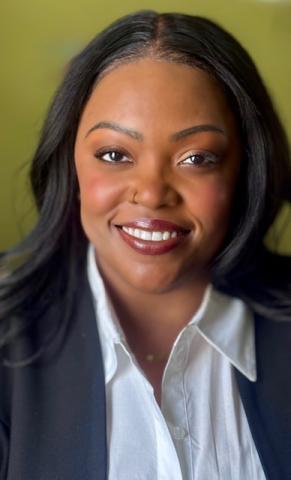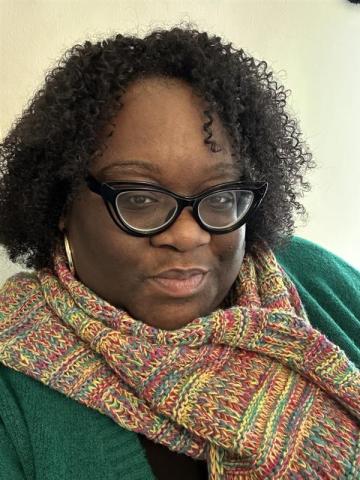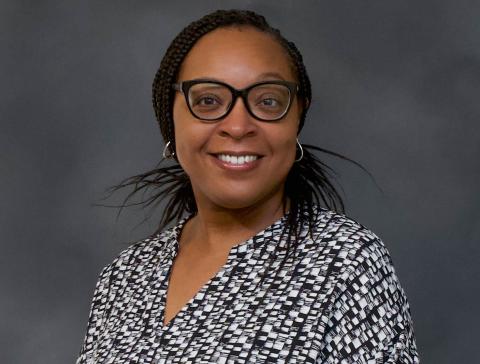Sojourner Place at Oliver Land Acknowledgement
On Thursday, September 9 we gathered to acknowledge the distinct histories of the land on which we build, celebrate the neighborhood and break ground on the future Sojourner Place at Oliver. In 14 months, affordable one, two and three bedroom apartments on this site will welcome 70 individuals and families home.
Below are President and CEO Kevin Lindamood's remarks from the morning.
With every construction project, great time and energy go into surfacing the distinctive character of the land on which we build. The project team depends on a thorough examination of the past uses of this property; they work to understand how that history affects the soil. The history of the land and the people who lived on it shape the present day and our possible future.
In that spirit, we start today's program with a land acknowledgement. This might be a new concept for many. Grounded in indigenous history, land acknowledgement offered by non-indigenous people is a way to recognize a history that has been deliberately erased and to move forward, informed by that history, toward a more just future.
Baltimore City is the ancestral home to the Paskestikweya (Pist-ka-tanh-wah) people, translated into English as Piscataway. We stand at the tip of a vast coastal area that sustained indigenous peoples until the arrival of Europeans in the 1600s. The Piscataway peoples were decimated, absorbed by larger tribes and eventually forced to move west.
This land was shared in common with the Susquehannock Tribe. The tribe suffered genocide at the hands of colonists. Known descendants are among the Iroquois and Lenape Tribes today.
We acknowledge past and present citizens of the Cedarville Band of the Piscataway Conoy, the Piscataway Indian Nation, Piscataway Conoy Tribe, Susquehannock Tribe, and the many members of the Lumbee Tribe of North Carolina who have and continue to make Baltimore their home. We acknowledge that we stand on stolen land.
A traditional purpose of a land acknowledgement is to relate to the environment – the earth, the trees, the rivers and people who surround and precede us. However, we feel compelled to continue our acknowledgements because there are further truths that need telling…
Following colonization in the 1700-1800s, what is now Oliver was largely farmland. Indentured servants from Ireland, Scotland and England and enslaved peoples from Africa worked this land and created the early economic power of White Baltimoreans and Marylanders.
Still, some fifty years before the Emancipation Proclamation, East Baltimore was a mecca of sorts for free Black people. Black communities here raised leaders like Isaac Myers, John W. Locks, John A. Fernandis and the famous abolitionist, orator, newspaper publisher and author Frederick Douglass.
In pursuit of opportunity, Black families moved into the city from around the state and, later, into the Oliver neighborhood from southern states at the beginning of the Great Migration. White city leaders, including Mayor James Preston, responded to the growth of Black residents with race-based ordinances. Baltimore became the test case for legalized housing segregation. While the judicial branch of the federal government deemed the ordinances unconstitutional, a newly created Federal Housing Administration advanced segregation with "red-lining" – a deliberate act of disinvestment.
Through racial covenants, redlining and racist policies spanning into the present day; we acknowledge that the people of the Oliver neighborhood have been denied equal opportunities for health and wealth.
The land you see before you supported row homes where generations grew up, went to school, started families of their own and had careers. The Joseph G. Locks Funeral Home, one of the nation’s oldest Black-owned businesses once operated on this land. The last remaining structure today once housed a community gathering space and social club - the Eastside Association Reindeer Club.
It is true that racist exploitation and theft impacted the Oliver neighborhood. It is equally true that East Baltimore's history of Black activists and business leaders carries a proud legacy as well.
Faith leaders and current residents – as private citizens and through groups like the Oliver Community Association, Baltimoreans United In Leadership Development, OC 250 (O C two-fifty), and The 6th Branch – are serving the community by growing free produce, engaging youth in community concerts and basketball games, and drawing financial investment into the neighborhood.
To activists and residents of the Oliver neighborhood, past and present, we acknowledge you. May the quality affordable housing to rise on this land bring additional investment.
Names matter. Isabella Bomfree, born into slavery in 1797, would grow to realize the importance of names – who they represent and what they lift up. In 1843, she renamed herself Sojourner Truth and became a nationally-known activist against slavery and for voting rights, civil rights and women’s rights.
This building – Sojourner Place – named in her spirit, will not be known by its address on Preston Street – the street named after the very same Mayor Preston – but will be named instead in honor of this community: Sojourner Place at Oliver.
We stand on stolen land. We stand on redlined land. We stand with this community to make possible quality affordable housing to prevent and end homelessness.
More Recent News
We are thrilled to welcome Nikia Woodard, our new Director of Human Resources! With more than two decades of experience in the HR field, Nikia previously held leadership roles with the Maryland Transit Administration, Unified Women’s Healthcare and a behavioral health residential treatment facility for youth in Baltimore. Most recently, she served as Director of Employee Experience & Organizational Development at Loyola University Maryland, implementing university-wide professional development programs and encouraging a culture of continuous learning. Read on to learn more about Nikia (and her favorite snack)…
After a year of serving as Practice Manager of West Baltimore, Alkema Jackson is moving into the new role of Director of Practice Operations, Community Sites! She joined Health Care for the Homeless in 2022 as the Client Access Project Coordinator, collaborating across departments to help more people connect to agency services, and in 2023, she received a Core Value Award for Hope. Read on to learn more about Alkema’s approach to this new position…
Meet Christana Greene, our new Director of Compliance! With more than five years in the compliance field—most recently as Senior Quality and Patient Safety Specialist at GBMC Healthcare—Chrissy brings frontline insight to the role. She began her career as a medical assistant, gaining firsthand experience in what it takes to keep care safe and operations running smoothly. In her new role, Chrissy is focused on building a compliance culture grounded in safety, integrity and accountability. Read on to learn more about Chrissy...
Baltimore gets dangerously cold, and too many of our neighbors are out there. Here are three simple things you can do to make a difference in someone’s life this winter.




